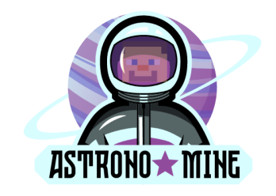Elhuyar Fundazioa
Elhuyar Fundazioa
Elhuyar was founded in 1972 with the aim of bringing together science and the Basque language. It took its first steps as a
cultural association and became a private foundation in 2002. Since then, the Elhuyar Foundation has been dedicated,
uninterruptedly, to the dissemination of science and technology and the development of the Basque language.
The Elhuyar
Foundation is a non-profit organisation, whose activity is financed from various sources: contributions from its members,
public subsidies and income from Elhuyar's products and services. It has a group of 90 professionals working in four
business units: 1. Scientific popularisation and science education, 2. Linguistic services, language engineering and multilingualism, 3. Consultancy specialising in social innovation, participation and gender, and 4, 4. Specialised communication services to universities and technology centres.
Within the science unit are the scientific popularisation projects with a long history such as the television programme
Teknopolis (EITB), the radio programme Norteko Ferrokarrila (EITB), the magazine Elhuyar, several websites such as
zientzia.eus and other related projects.
As for the department of scientific education, here we find regional level projects where various educational and social
agents, such as schools, the Basque Government, local councils, Research and Technology centers, universities, industry,
etc., converge in projects such as the science fair “Elhuyar Zientzia azoka”; and the Bizilabe youth research Centre in
Bilbao.
We have a stable network of collaborators that help us to improve our services and products and to diversify our fields of
knowledge and points of view (University of the Basque Country, Tecnalia and IK4 technology centers, Basque
Government, Gipuzkoa Provincial Council, etc.).
Each year, more that 60 schools and 1000 students participate in both projects, and several activities are managed, such as
teacher trainings, science festivals, students visiting research centres etc.
As a sample, we can point out the voluntary participation of university researchers and technology centers as mentors of
students participating in the science fair we organize (more than 300 researchers annually), and the several workshops we
organize for young people in Bizilabe research Centre, as an out of school activity where students work on Science and
Technology projects mentored by researchers. The department of STEAM education has experience in the coordination of several European projects related to STEAM education (STING, STEMFAIRNET, EMERGENT).
